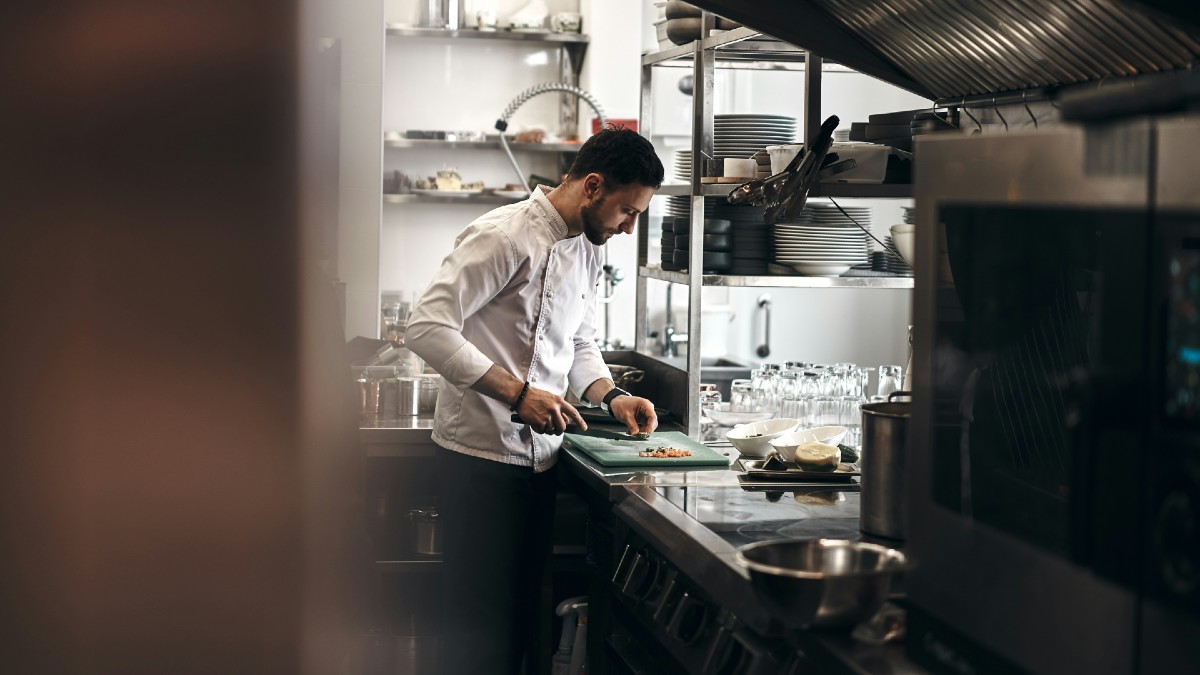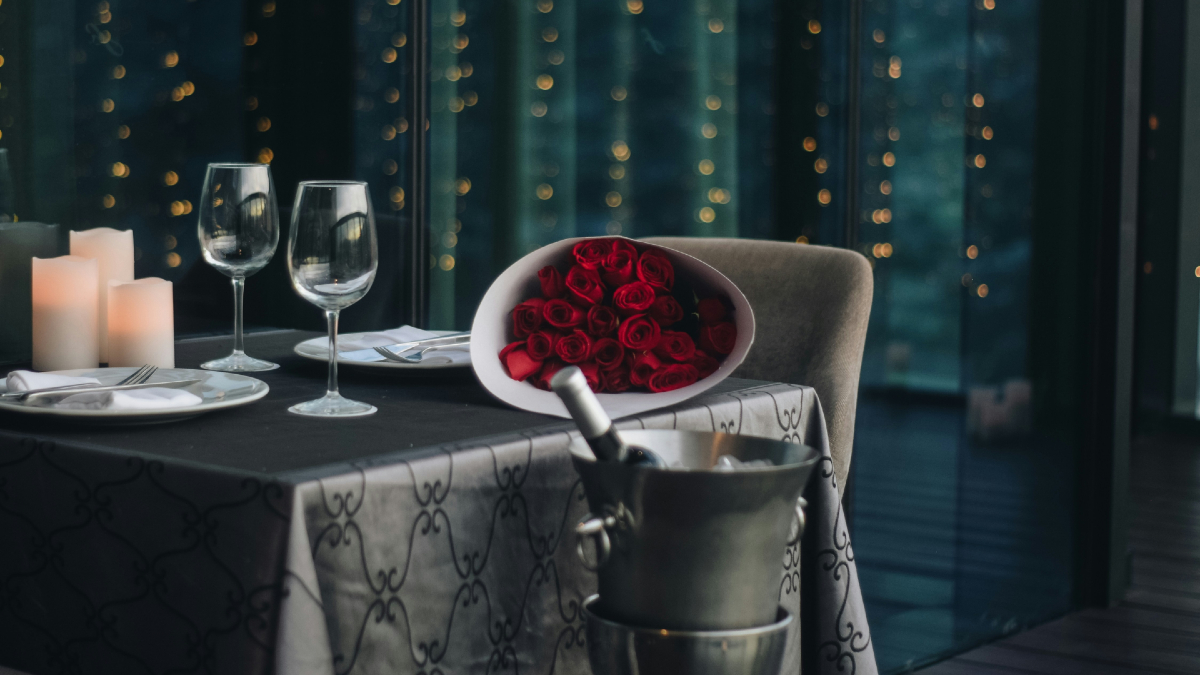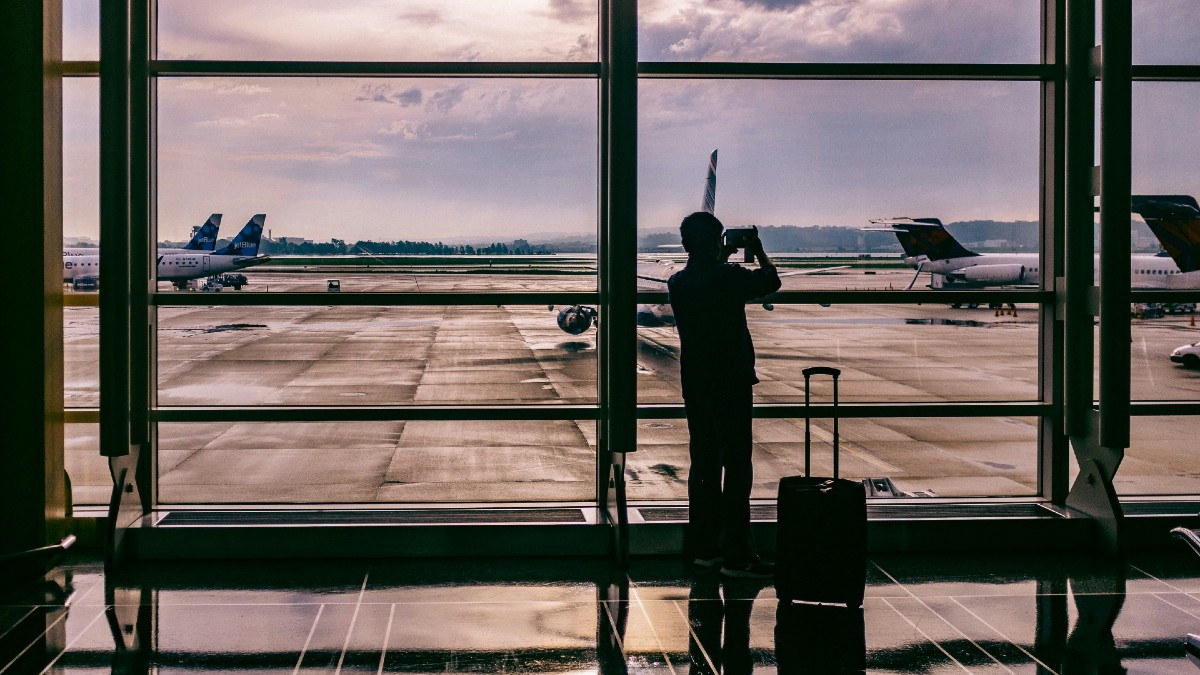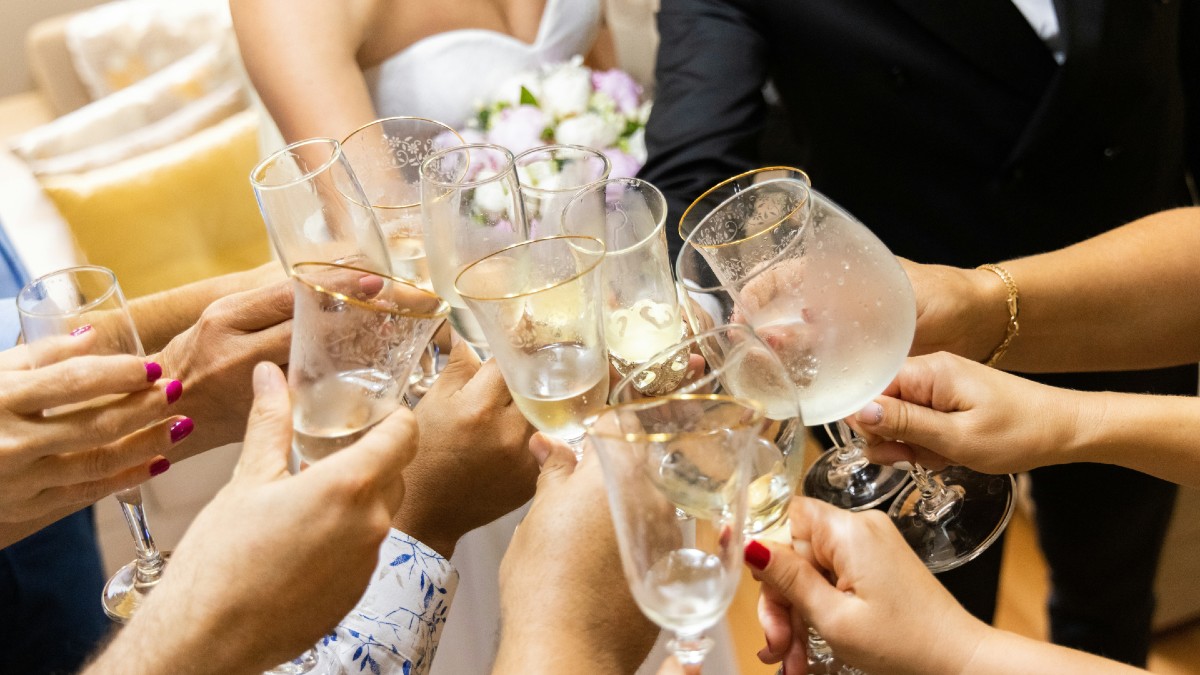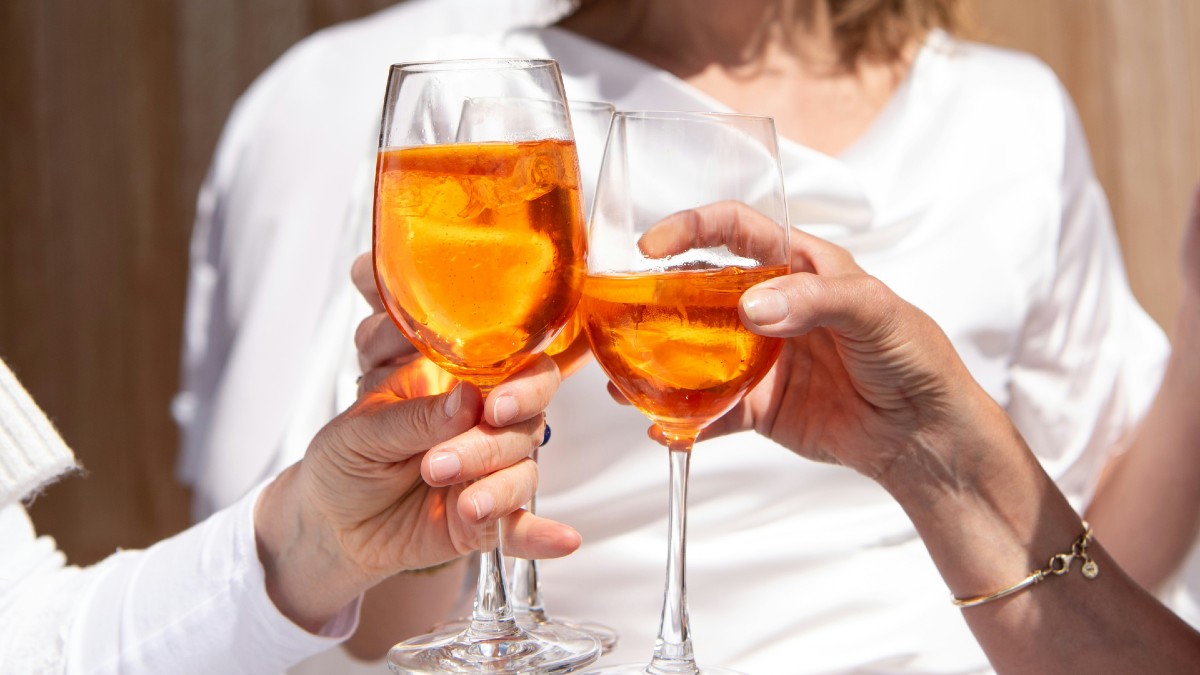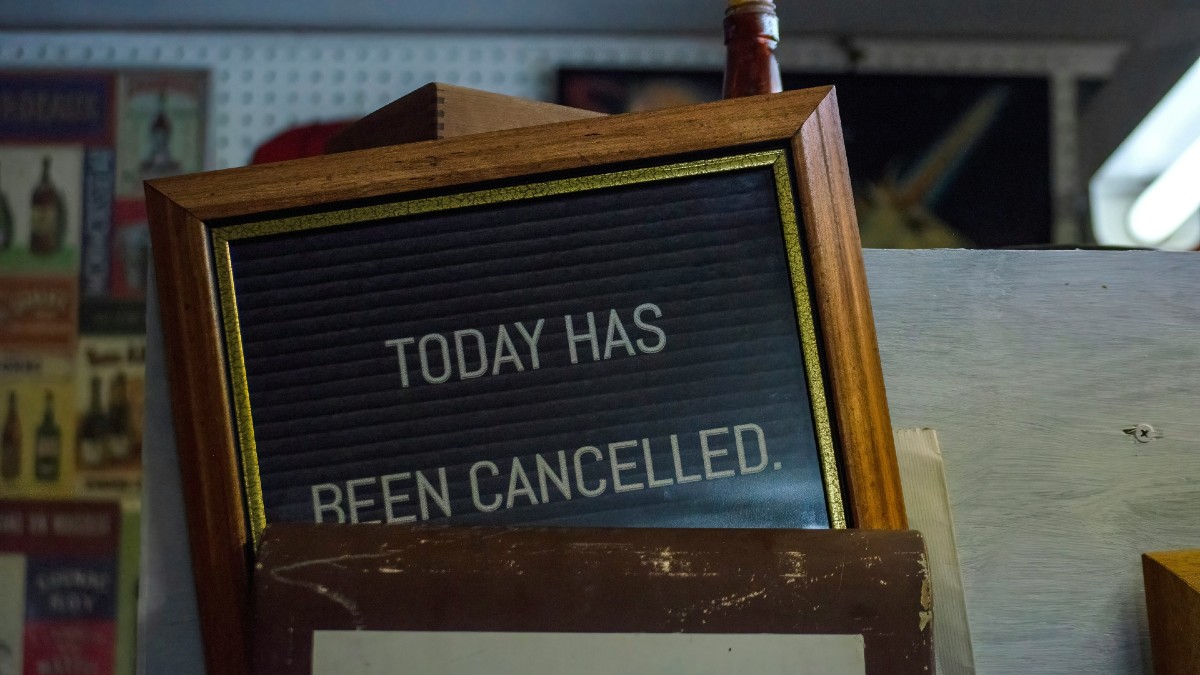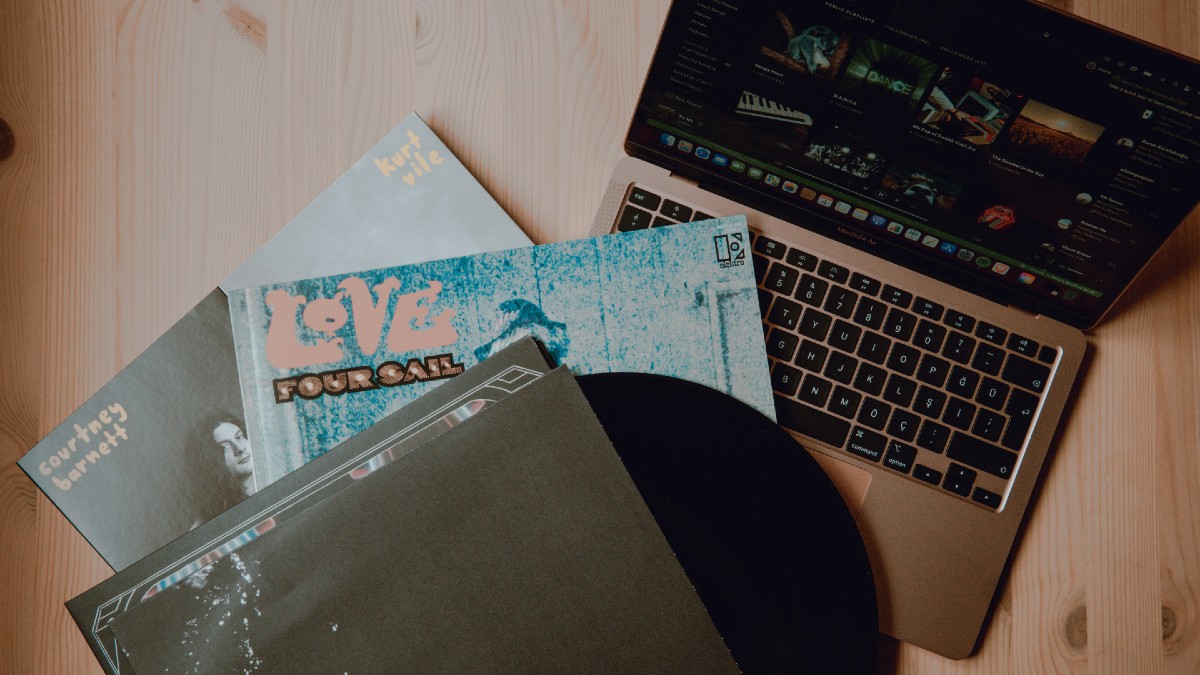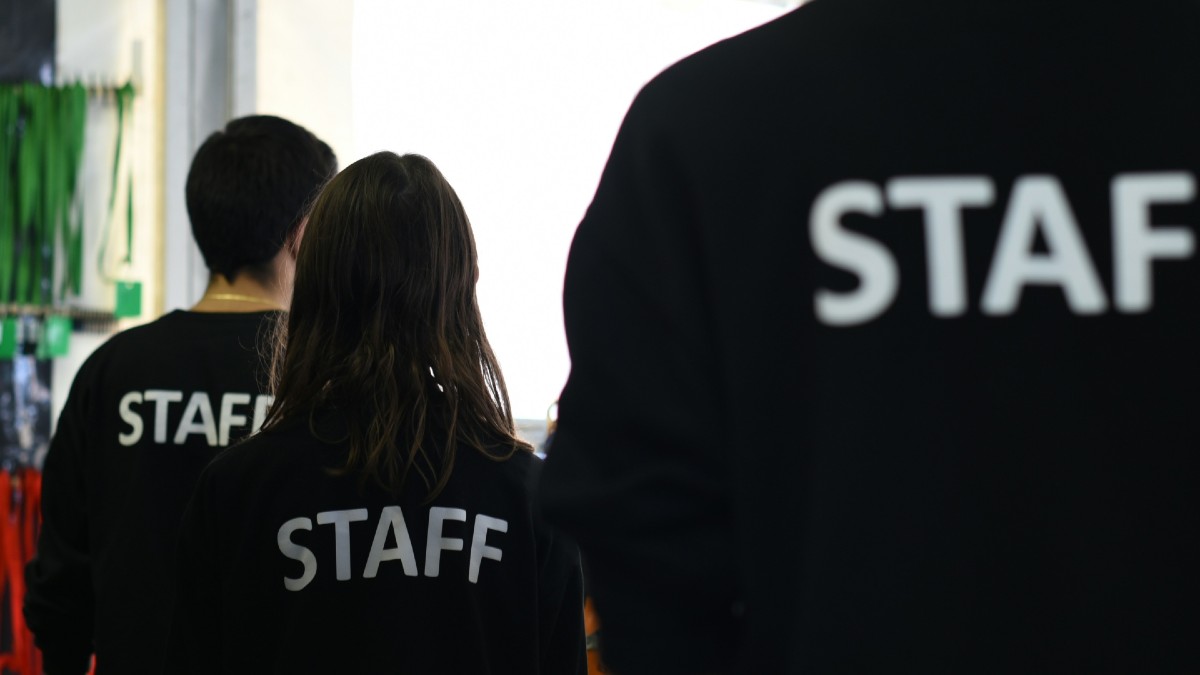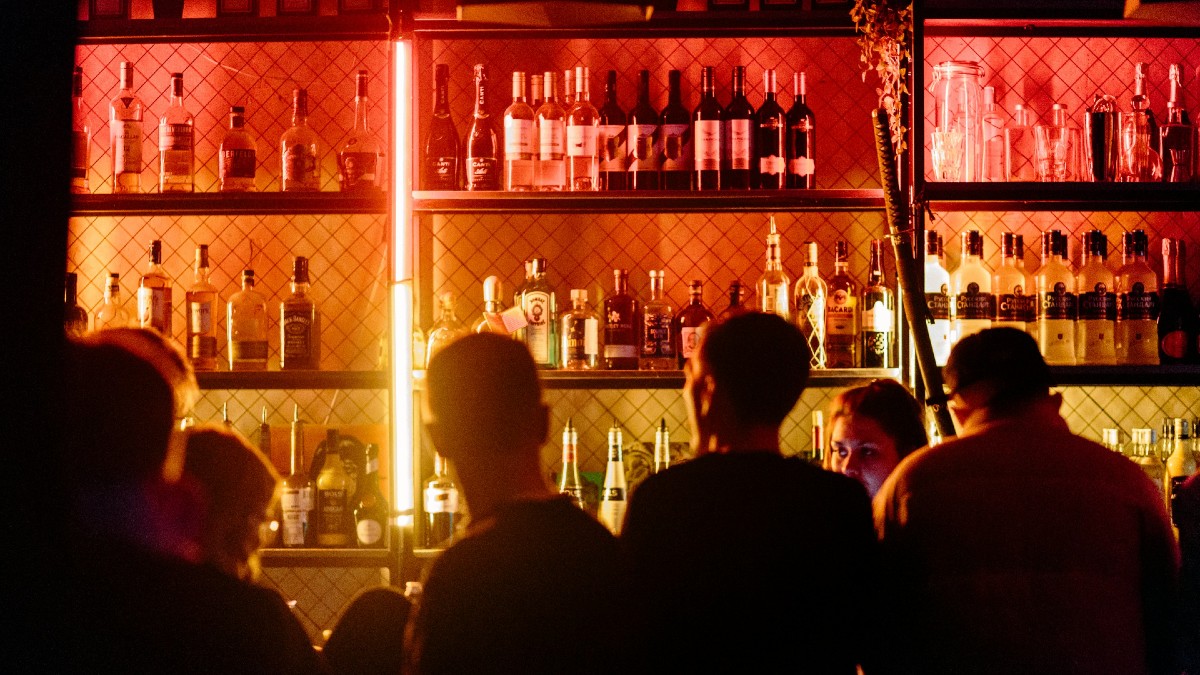
Written by: Cara Tirona
October 8, 2025
An open bar can elevate your event experience—encouraging guests to relax, mingle, and enjoy themselves. But without proper planning and guidelines, it can also lead to unexpected costs, liability concerns, or a less-than-professional atmosphere. Whether you’re organising a corporate gathering, product launch, wedding, or social celebration, it’s important to get it right.
In this guide, we cover the key dos and don’ts of having an open bar at events, including etiquette, planning tips, and how to make it a seamless part of your guest experience.
Understanding the Open Bar at Events
An open bar is essentially a setup where guests are free to order beverages at no cost to themselves; the host covers the tab either through a package deal or a bill settled at the end of the event. While this generous offering can enhance the social dynamics of your gathering, it requires thoughtful consideration and management to prevent potential pitfalls.
What Is an Open Bar?
An open bar is a setup where guests can order drinks at no cost to them—the event host covers the tab. It can range from beer and wine only to full-service cocktails and premium spirits. This flexibility allows hosts to tailor the beverage offerings to match the tone and budget of the event. For example, a wedding may opt for a more extensive selection, including signature cocktails, while a corporate event may choose to limit options to wine and beer to maintain a more formal atmosphere.
When Is It a Good Fit?
Deciding whether or not an open bar is the right choice for your event depends on several factors, including your budget, the nature of the event, and your guest list. Open bars are popular for weddings, gala dinners, networking events, and high-end corporate functions—any event where hospitality and guest experience are priorities.
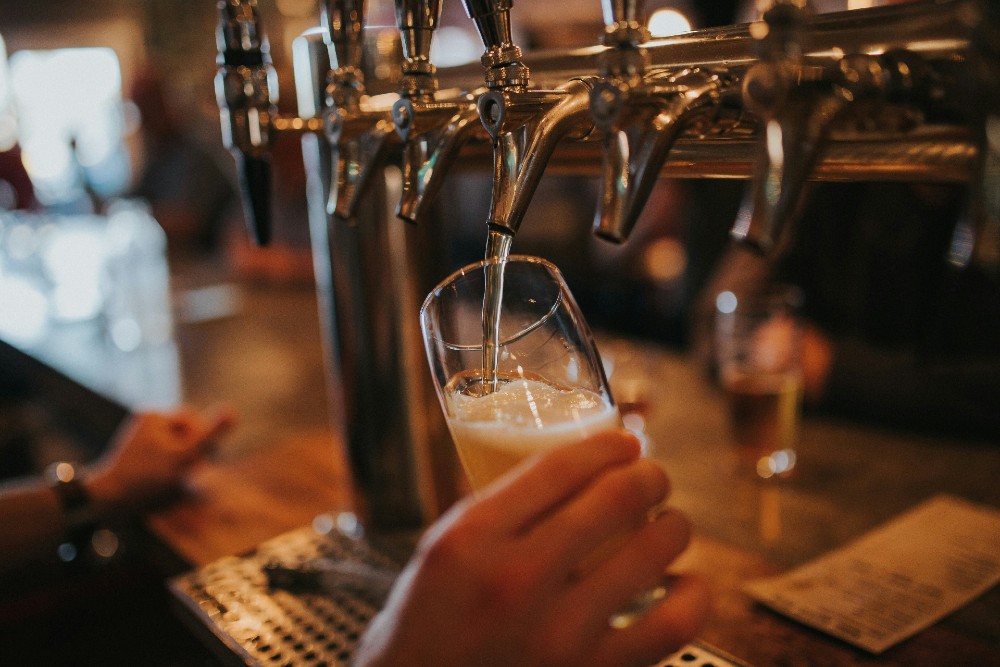
The Dos: Best Practices for Running a Successful Open Bar
To ensure your open bar contributes positively to your event's atmosphere while keeping things orderly and within budget, it’s crucial to adhere to some essential best practices. Here are the key strategies to consider:
Do Set a Budget
Before anything else, determine how much you are willing to spend on your open bar. Assess your broader event budget and decide what percentage should be allocated to beverages. This will guide your decisions on the types of drinks to offer and the duration the bar will be open. Consider setting a limit to the tab if you're paying by consumption, or choose a drink package that fits within your budget for more control over costs.
Do Know Your Audience
When planning an open bar, understanding your audience is key. Consider the demographics and preferences of your guests to curate a selection that caters to their tastes. For instance, if your event predominantly features young professionals, including trendy cocktails and craft beers may resonate more with them. On the other hand, a more mature crowd might appreciate a selection of fine wines and classic spirits.
Do Set Clear Limits and Packages
Choose from different open bar formats (beer/wine only, standard spirits, premium bar). Many venues offer packages that help you stay on budget. It's beneficial to discuss with the venue or caterer the alcohol pricing options available, as they can provide packages that suit the style and scope of your event.
Do Communicate With Your Venue Early
It's crucial to have early discussions with your venue or caterer regarding your open bar needs. By doing this, you ensure that all parties are aligned on expectations and can work together to design a feasible bar service plan. Confirm the specifics: what types of alcohol can be provided, the availability of particular brands, and any licensing or insurance requirements the venue may have.
Clear communication can help preempt any logistical issues, such as glassware needs, staffing requirements, and licensure if your event is taking place in an unusual location. By addressing these details upfront, you avoid last-minute surprises and ensure that your event runs smoothly.
Tip: Some venues have in-house liquor licenses and bar staff, while others allow BYO. Use platforms like VenueNow to compare these inclusions upfront.
Do Hire Licensed Staff
Having licensed staff at your event's open bar is not only a legal requirement in many regions but also an essential aspect of providing a safe and professional experience for your guests. Licensed bartenders are trained to handle alcohol responsibly, including recognising signs of intoxication and taking appropriate action when necessary. They are also knowledgeable about serving techniques and can provide a more enjoyable and efficient service. Additionally, having professional staff reduces your liability as the event host, as they are aware of and adhere to local laws and regulations. Employing licensed personnel ensures that everything runs smoothly, while also providing peace of mind so you and your guests can fully enjoy the occasion.
Note: Always ensure professional, RSA-certified bartenders are serving. This protects your guests—and you—from liability.
Do Offer Non-Alcoholic Options
Offering non-alcoholic options at your open bar is an important consideration that caters to all your guests, regardless of their drinking preferences. While some attendees might prefer a cocktail or glass of wine, others may abstain from alcohol due to personal choice, health reasons, or because they are designated drivers. Providing a variety of enticing non-alcoholic beverages ensures everyone feels included and has something refreshing to enjoy throughout your event. A good open bar includes sparkling water, juices, and mocktails for guests who don’t drink alcohol.
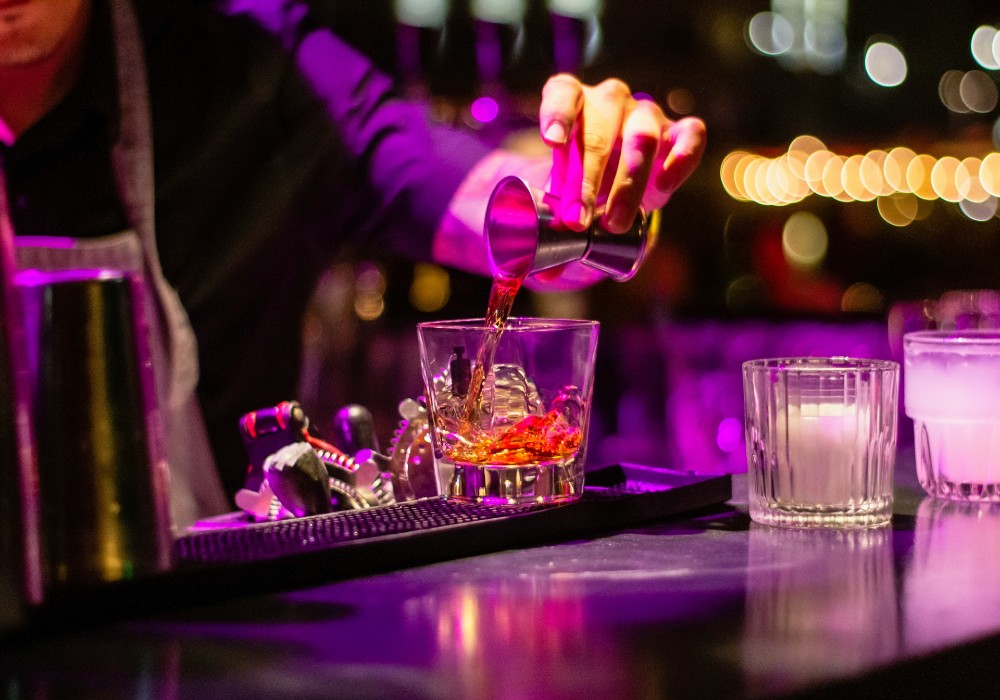
The Don’ts: Common Open Bar Mistakes to Avoid
When planning an event with an open bar, it's crucial to avoid common pitfalls that could lead to unnecessary complications and overspending. By being aware of these potential mistakes, you can ensure a smooth and enjoyable experience for both your guests and yourself. Here are some important don’ts to keep in mind when organising an open bar:
Don't Overlook Budget Constraints
One of the most common mistakes when planning an open bar is failing to set and adhere to a budget. It's easy to get carried away with premium selections and an extensive drink menu, but this can quickly escalate costs. To prevent going over budget, start by calculating how much you are willing to spend per guest and work with your bartender to curate a balanced menu that includes both economy and high-end options. Consider offering a wide range of drinks but limiting the number of higher-cost items. This allows you to provide variety without breaking the bank, ensuring that both you and your guests are satisfied with the offerings.
Tip: Choose a flat-rate package over a consumption-based one if you're worried about unpredictability in costs.
Don't Neglect the Importance of Timing
Timing is crucial when it comes to managing an open bar at events. Failing to plan the timing effectively can lead to overcrowding at the bar, wait times, and a less enjoyable experience for guests.
Rather than opening the bar for the entire event duration, consider setting specific times when the bar is open. This can help manage crowd flow and ensure that guests spend more time mingling and enjoying other aspects of your event.
Align the bar open times with key parts of your event, such as after speeches or during social hours. This can encourage social interaction and ensure guests are ready to enjoy other planned activities.
Don’t Forget to Monitor Consumption
While it's great to treat your guests, overconsumption can derail your event’s tone. Work with staff to track limits discreetly. To ensure your event remains enjoyable for all attendees, it's vital to keep an eye on alcohol consumption responsibly. Here are a few strategies to help you monitor and manage this without drawing unnecessary attention:
- Engage Professional Bartenders: Experienced bartenders are skilled at recognising signs of overconsumption and can tactfully manage guests who may be reaching their limits. They can suggest alternative drinks or offer water without causing embarrassment.
- Utilise Drink Tickets: Providing guests with a limited number of drink tickets can naturally cap the amount of alcohol consumption. This system allows everyone to enjoy a few drinks while encouraging moderation and pacing throughout the event.
- Introduce Fun Alternatives: Offer activities that shift focus away from drinking by incorporating entertainment, games, or interactive experiences. This diversifies the event experience and helps balance alcohol consumption with other engaging elements.
Don’t Mix an Open Bar With Poor Food Planning
An open bar can be a highlight at any event, but pairing it with poor food planning can lead to a less-than-satisfactory experience for your guests. Ensuring you have ample, strategically timed food options will not only support a positive atmosphere but also help mitigate the risks associated with alcohol consumption.
Always pair alcohol with sufficient food options. Light canapés won’t cut it—opt for more substantial catering if offering spirits.
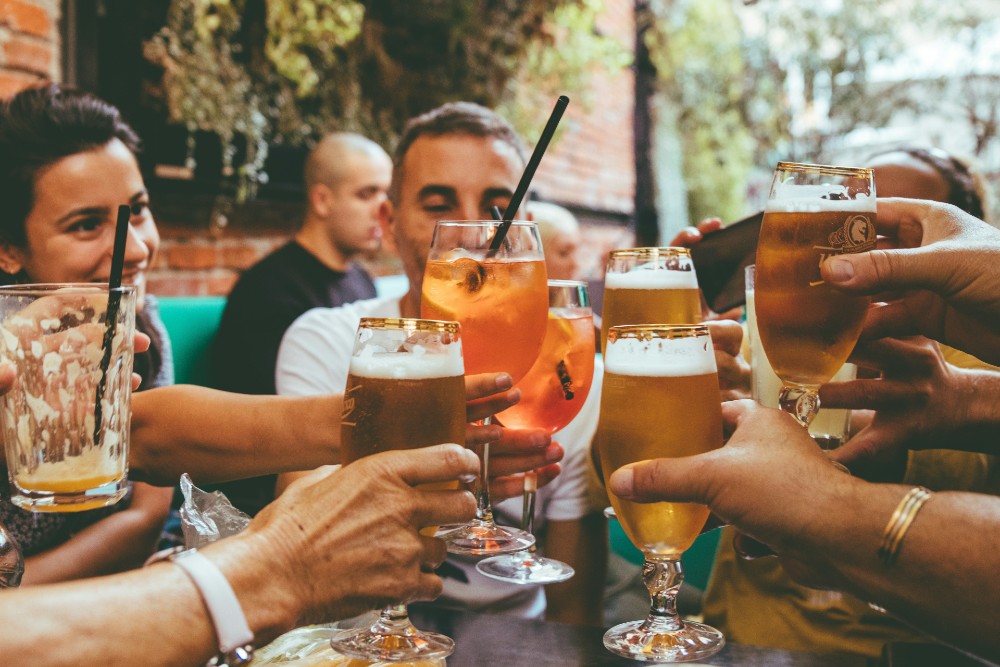
Open Bar vs. Cash Bar: Which Is Better for Your Event?
A cash bar is a system where guests are required to purchase their own drinks. This option can be more budget-friendly for the host but may sometimes lead to a less festive atmosphere.
Choosing between an open bar and a cash bar for your event involves weighing several factors, including budget, guest expectations, and the type of atmosphere you wish to create. Each option comes with its own benefits and drawbacks, and it's essential to understand these to make the best decision for your event.
Open Bar: The Benefits and Considerations
Benefits:
- Guest Enjoyment: An open bar is often seen as a generous gesture, enhancing the guest experience by allowing unrestricted access to beverages. It can foster a convivial atmosphere where guests feel special and pampered.
- Simplified Transactions: With an open bar, there's no need for guests to handle money at the event, reducing lines and speeding up service. This allows guests to spend more time enjoying the event and less time waiting at the bar.
- Predictable Guest Experience: With drinks freely available, you can better predict the event's social dynamic, ensuring everyone has access to what they want without concerns over cost.
Considerations:
- Budget Constraints: Open bars can be costly, and expenses can quickly add up, especially if your guest list is large. It's critical to set a clear budget cap to avoid unexpected surprises. Consider working with the venue to create a customised drink menu or limit premium options to manage costs effectively.
- Overconsumption Risks: Open accessibility to alcohol can sometimes lead to overindulgence by guests. This not only poses safety concerns but can also disrupt the event. Consider hiring professional bartenders who can help monitor guest consumption and suggest non-alcoholic alternatives.
Pros and Cons of a Cash Bar
Pros:
- Cost-Effective for Hosts: One of the most significant advantages of opting for a cash bar is cost savings. Since guests pay for their own drinks, the event budget can be more easily managed, allowing funds to be allocated to other areas like entertainment or décor.
- Encourages Responsible Drinking: When guests are responsible for purchasing their drinks, they are generally more conscientious about their consumption levels. This not only encourages moderation but also reduces the likelihood of overindulgence and its associated risks.
- Simplifies Budget Planning: With a cash bar, there is no worry about racking up unexpected costs for the host. By eliminating the need to account for a large bar tab, budgeting for other elements of the event becomes more straightforward and manageable.
- Flexibility in Pricing: Cash bars can offer a range of pricing options for different beverages, allowing guests the freedom to choose either budget-friendly or premium drinks based on individual preferences.
Cons:
- Less Welcoming Atmosphere: When guests are required to pay for their drinks at an event, it can create a less hospitable environment. Some attendees might feel inconvenienced or even deterred from fully enjoying the event, as they may not have anticipated these additional expenses. This could impact overall guest satisfaction, particularly if the expectation was for the event to be fully hosted.
- Potential Awkwardness for Guests: A cash bar can sometimes lead to awkward social situations, especially if some guests are unaware of the arrangement before the event. This can result in uncomfortable scenarios where guests might feel obligated to spend money they hadn’t planned for or might be less inclined to engage in social activities if they include additional costs.
- Perception of Limited Host Generosity: For some, a cash bar might be perceived as a reflection of the host's lack of generosity. This perception can affect the overall impression of the event and might result in negative feedback. Guests can sometimes equate a hosted bar with a gracious gesture, which might be less evident with a cash bar approach.
- Additional Logistics for Event Hosts: Managing a cash bar requires extra logistics, including ensuring there’s a secure and efficient payment system.
- Longer Queues: A cash bar can often result in longer waiting times for guests as transactions need to be processed individually. This can lead to delays and increase the time guests spend queuing rather than socialising. Extended wait times can negatively impact the overall flow and enjoyment of your event.
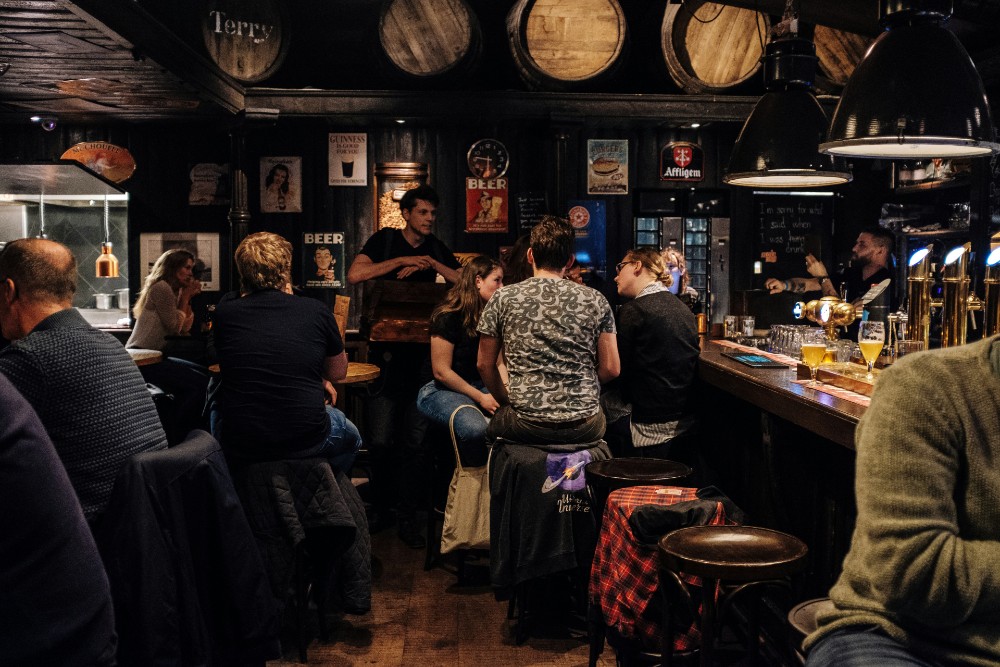
Consider a Hybrid Option
A hybrid option can be a brilliant middle ground that combines elements of open and cash bars, offering the best of both worlds. By providing a selection of complimentary drinks while also having premium or specialty beverages available for purchase, event hosts can mitigate costs without compromising on hospitality. This approach allows guests to enjoy a welcoming atmosphere with access to free standard drinks, such as house wines, beers, and soft drinks, while still catering to those who prefer luxury or exclusive options. Additionally, a hybrid bar can enhance guest satisfaction by offering variety and choice, demonstrating thoughtfulness and consideration for diverse preferences and budgets. By clearly communicating the hybrid bar arrangement in advance, hosts can manage expectations and ensure a more seamless experience for everyone involved.
Note: A hybrid setup—first few drinks free, then cash bar—can balance generosity with cost control.
Conclusion: Make the Most of Your Open Bar with Smart Planning
An open bar can elevate your event when done right—but it requires careful planning, smart budgeting, and responsible service.
Whether you're planning a corporate mixer, social celebration, or elegant fundraiser, VenueNow helps you find venues that suit your bar service needs.
Start planning your perfect event with the right venue and the right bar setup. Explore VenueNow today.
Looking for an event venue to hire?
VenueNow has you covered with over 2,000 venues across Australia ranging from large event spaces to small meeting rooms. Find your perfect venue for hire faster than anywhere else.
Follow us on social media to stay up to date with the latest news
Customers
Want to get in contact?
Call our support team on 1300 647 488 during business hours AEST.
Follow Us
© Copyright VenueNow 2026 | SPARE GROUP PTY LTD | ABN 22 607 830 302


